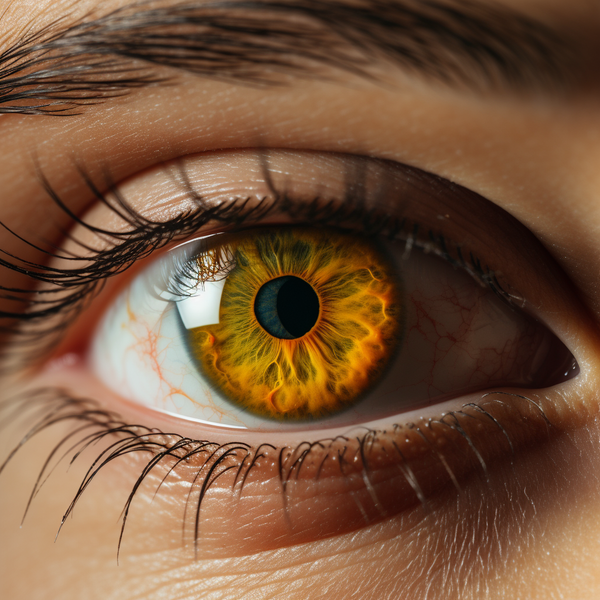
Why Eggs Are More Than Just 'Good For You': A Deep Dive into the Science
Eggs are not just a breakfast staple; they are a nutritional powerhouse, revered by dieticians and medical professionals alike. Let's dive deep into 10 scientifically-proven health benefits of eggs that will compel you to incorporate this wonder food into your daily regimen.

The Nutrient Profile of Eggs: Beyond the Basics
Eggs are a nutritional goldmine, packed with an array of vitamins and minerals. A single large egg offers:
- Vitamin A: 9% of the DV (Daily Value)
- Folate: 7% of the DV
- Vitamin B5: 16% of the DV
- Vitamin B12: 25% of the DV
- Riboflavin (Vitamin B2): 22% of the DV
- Phosphorus: 9% of the DV
- Selenium: 30% of the DV
Additionally, eggs provide ample amounts of Vitamin D, E, B6, calcium, and zinc—all within a modest 72 calories, alongside 6 grams of protein and just 4.8 grams of fat.

| Nutritional Components | Small Boiled Egg (38g) | Medium Boiled Egg (44g) | Large Boiled Egg (50g) |
|---|---|---|---|
| Calories | 54 | 63 | 72 |
| Protein (g) | 4.5 | 5.3 | 6.0 |
| Total Fat (g) | 3.6 | 4.2 | 4.8 |
| Saturated Fat (g) | 1.1 | 1.3 | 1.5 |
| Cholesterol (mg) | 141 | 164 | 186 |
| Sodium (mg) | 54 | 63 | 72 |
| Carbohydrates (g) | 0.6 | 0.7 | 0.8 |
| Sugar (g) | 0.6 | 0.7 | 0.8 |

The Cholesterol Myth: Eggs and Heart Health
Contrary to popular belief, dietary cholesterol found in eggs has minimal impact on blood cholesterol levels for about 70% of the population. Your liver naturally produces cholesterol daily, adjusting its production based on dietary intake. For those genetically predisposed, a moderate consumption approach is advised.

Elevating Good Cholesterol: The HDL Factor
HDL, or high-density lipoprotein, is your 'friend' in the cholesterol family. Research indicates that consistent egg consumption can increase HDL levels by 6-13%, thereby potentially lowering the risk of cardiovascular ailments.

The Underestimated Nutrient: Choline
Choline, a nutrient essential for building cell membranes and neurotransmitters, is abundant in eggs. A single egg packs more than 100 mg of choline, making it one of the best dietary sources for this critical nutrient.

Egg Consumption and LDL: A Closer Look
LDL cholesterol is often labeled as 'bad,' but did you know it's not that simple? LDL particles vary in size, and it’s the smaller, denser particles that are more problematic. Egg consumption is shown to predominantly increase the larger, less dangerous LDL particles, offering a potential cardiovascular advantage.

Supporting Eye Health: Lutein and Zeaxanthin
These powerful antioxidants, found in ample amounts in egg yolks, can dramatically reduce the risk of cataracts and macular degeneration. One study revealed a 26% increase in blood levels of lutein and a 38% increase in zeaxanthin after daily consumption of one egg for five weeks.

The Omega-3 Advantage: More than Just Fish Oil
Eggs from hens raised on omega-3 enriched feeds or pastures are rich in this vital nutrient. Omega-3 fatty acids are known to decrease levels of triglycerides, a risk factor for heart disease.

Protein Powerhouse: Eggs and Muscle Building
Packing 6 grams of high-quality protein, eggs offer all the essential amino acids in optimal ratios. This is indispensable for muscle development, weight loss, and bone health, among other physiological functions.

Feel Full, Eat Less: The Satiety Index
High-protein foods like eggs score well on the satiety index, helping you feel full longer. This can be beneficial in weight management, as it naturally leads to reduced calorie intake.

The Versatility of Eggs: Culinary and Beyond
Eggs are not just nutritious; they are incredibly versatile, serving as a key ingredient in myriad recipes, from omelets to pastries. Furthermore, they are affordable and have a long shelf life.

Summary: Why Eggs are Indispensable
To sum it up, eggs are a cornerstone of a balanced diet, offering an incredible range of nutrients, benefits for heart and eye health, muscle-building proteins, and satiety-inducing qualities. So the next time you enjoy an egg, know that you're doing your body a world of good.

FAQ's
Q1: What nutrients are found in a single large egg?
A single large egg contains a variety of vitamins and minerals including 9% of the DV (Daily Value) of Vitamin A, 7% DV of Folate, 16% DV of Vitamin B5, 25% DV of Vitamin B12, 22% DV of Riboflavin (Vitamin B2), 9% DV of Phosphorus, and 30% DV of Selenium. It also contains other nutrients like Vitamin D, E, B6, calcium, and zinc.
Q2: How do eggs affect cholesterol levels?
Dietary cholesterol from eggs has minimal impact on blood cholesterol for approximately 70% of the population. For those who are genetically predisposed to cholesterol-related issues, moderate consumption is advised. Regular egg consumption can also raise levels of good cholesterol (HDL) by 6-13%.
Q3: What is Choline and how much is found in eggs?
Choline is a nutrient essential for building cell membranes and neurotransmitters. A single egg contains more than 100 mg of choline, making it one of the best dietary sources for this critical nutrient.
Q4: How can eating eggs benefit eye health?
Egg yolks are rich in antioxidants like Lutein and Zeaxanthin, which can significantly reduce the risk of cataracts and macular degeneration. Daily consumption of one egg for five weeks led to a 26% increase in blood levels of lutein and a 38% increase in zeaxanthin in one study.
Q5: What are the benefits of eggs in terms of weight management?
Eggs are high in protein and score well on the satiety index, which means they can help you feel full longer. This can contribute to weight management by naturally leading to reduced calorie intake.

Disclaimer:
The information provided in this text is intended for general informational and educational purposes only. While every effort has been made to ensure the accuracy and reliability of the content, it should not be construed as medical or nutritional advice. Individual health needs vary, and as such, it is advisable to consult with a qualified healthcare professional for personalized advice and treatment plans. The data provided on the nutrient content and health benefits of eggs are based on general research and may not apply to all individuals. In Australia, "Daily Value" percentages may vary based on local guidelines and regulations.
Please note that for those with certain medical conditions or dietary restrictions, egg consumption may not be suitable and should be discussed with a healthcare provider. The authors, publishers, and distributors of this text disclaim any liability or loss in connection with the information and advice provided here.


Leave a comment